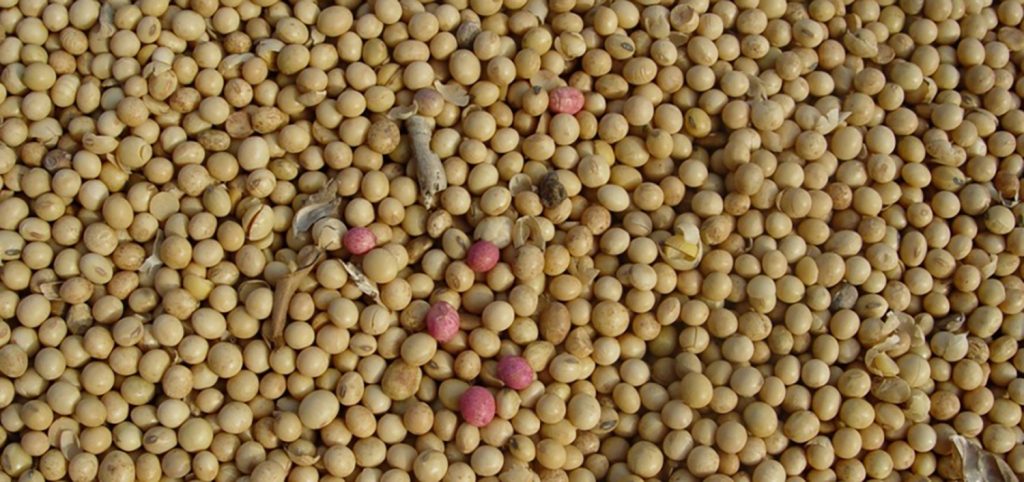Congressman Collin Peterson and his staff hosted a town hall meeting in Marshall on Thursday, intending to give farmers and area businesses a better understanding of the current agriculture climate in Washington, D.C. A wide array of topics were covered, but a majority of the conversation centered around prevent planting, the new Market Facilitation Program (MFP) and trade deals.
“They are going to come up with a per-acre payment per county,” says Peterson on the latest round of MFP payouts. “I can guarantee you that these payments will be significantly different from county to county. This is going to cause problems.”
With a relentlessly wet spring across Minnesota, farmers are now trying to figure out what is best for their farm. While these decisions are normally cut and dry based on the conditions of their farm, announcements of new and updated government programs have further complicated matters for farmers.
“I wish I could tell you more to help you make a decision,” says Rep. Peterson, who represents Minnesota’s Seventh Congressional District. “We just aren’t going to know details for a few more weeks.”
Rep. Peterson stressed the pivotal stipulation in the newest program that requires farmers to plant a crop in order to receive their payment.
“This is all based on planted acres, and if you don’t plant, you don’t get a payment,” says Peterson. “You can plant everything into alfalfa if you wanted to, you just need to plant something.”

The requirements has farmers employing a wait-and-see approach.
“It is hard to make a decision right now as a farmer,” says Brian Fruechte, a Lincoln County farmer and director with the Minnesota Soybean Growers Association (MSGA). “There are programs like the MFP that might encourage farmers to plant a little longer, but Rep. Peterson mentioned that prevented plant coverage might increase and that would incentivize you the other way.”
In the newest disaster bill currently being formed, prevented plant acres includes a revision to raise the coverage of those acres, potentially up to 90 percent.
“When we get back to Washington on Tuesday, I think the House will pass it,” says Peterson. “Now, I don’t think it is going to be 90 percent when final, but the Senate did this bill without listening to (the Agriculture Committee) or the House.”
The current prevented plant policy covers 55 percent of the guarantee in corn and 60 percent of the guarantee in soybeans. Raising these numbers could have a significant impact on farmers’ bottom line.
“They (the Senate) have put you in an impossible situation to try and figure out what to do,” says Peterson. “The advice I got from economists is that you are to make the decision for your farm and not based on the government.”
With a majority of the meeting focused on MFP and prevent planting, trade was also at the top of many minds.
“I think USMCA will happen and has positive movement,” says Peterson. “They made the ag stuff a little better and I support it. I will do whatever I can to get it done.”
United States Mexico Canada Agreement (USMCA) is on the table to replace the current NAFTA trade policy. Rep. Peterson shared his optimism of the agreement and foresees it passing this fall.
“It sounds like we will get USMCA passed, which is good,” says Bill Gordon, American Soybean Association vice president and Worthington farmer. “As long as the president doesn’t pull us out of NAFTA, we are going to be fine until USMCA is passed.”
With the latest tariff hikes, soybeans quickly became a topic of discussion.
“We produce too many soybeans,” says Rep. Peterson. “With African Swine Fever killing over 30 percent of China’s hogs and the increase in tariffs, this created the perfect storm for the soybean market. I don’t see prices coming back for the next two or three years.”
With farmers already experiencing financial strain on the farm, it is now more important than ever to have open communication with all stakeholders of the operation.
“Every farmer is going to have their own situation and it’s critical to continue having an open conversation with those who will help make your decision,” says Gordon. “Continue talking to your retailers, your insurance agents, your bankers. Utilize the resources around you.”
Rep. Peterson reassured his constituents that he’s doing everything he can to improve the agriculture outlook.
“I worked very hard to make sure the farm bill went through,” says Peterson. “I will continue to work hard for farmers when I get back to D.C. and moving forward.”





